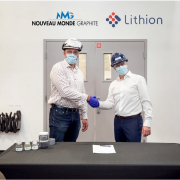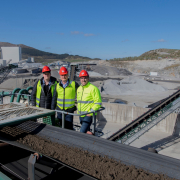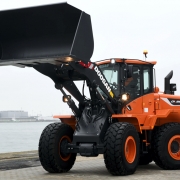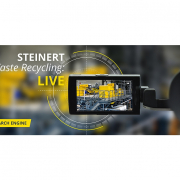Tidy Planet with Exclusive Distribution Partner in Norway
The provider of on-site organic waste solutions, Tidy Planet, has expanded into Scandinavia, appointing Norwegian waste management firm Berekraft for Alle as the company’s latest distribution partner.
Translated into English as ‘sustainability for all,’ Berekraft for Alle is a start-up company on Norway’s west coast, which specializes in the procurement of equipment for water purification, waste vacuum transport and composting. “The move represents Tidy Planet’s first commercial collaboration in this area of Northern Europe,” the information says.
As a result, Tidy Planet’s Rocket Composters – designed to process food, green and animal wastes, as well as sewage sludges – have been added to Berekraft’s portfolio, to help manage the country’s organic wastes more sustainably.
“In Norway, we still have a problem with councils using our fjords and oceans as places to dispose of sewage sludge, which is damaging the health of our marine ecosystems – something we’re passionate about combating,” Berekraft for Alle’s CEO, Rune Brandal, commented. “This partnership with Tidy Planet is a great opportunity to introduce equipment which has the power to change the way this waste stream is currently being dealt with.”
Also a distributor for equipment supplier Aqseptence Group, Berekraft for Alle will combine the German firm’s water filtration technology – which generates clean water and compostable sludge – with Tidy Planet’s composting solutions. “Merging the waste management technologies will create a complete wastewater handling system that converts this troublesome waste stream into a valuable compost resource, which we can offer to all Norwegian municipalities,” Rune Brandal is convinced.
Commercial food waste management is another sector he sees Tidy Planet’s In-Vessel Composters helping optimize the industry. “In Norway, we have a small population with large land mass, meaning sustainable management of organic wastes can be challenging and expensive for businesses – especially those located in rural areas. “Organic wastes are often transported over long distances – sometimes over the border into Sweden – and end up being incinerated or used in anaerobic digestion to create biogas,” he described the current practice. “Many of Norway’s waste policies are created with the more densely populated areas in mind, so our challenge has always been finding solutions which are economical on a smaller scale.”
Tidy Planet’s director, James Tyler, believes Norway’s public awareness of ‘green,’ environmental issues is catalyzing a growing appetite among councils and companies to seek out a more localized approach to managing their wastes.
www.tidyplanet.co.uk
www.berekraftforalle.no
(GR 32019S)









